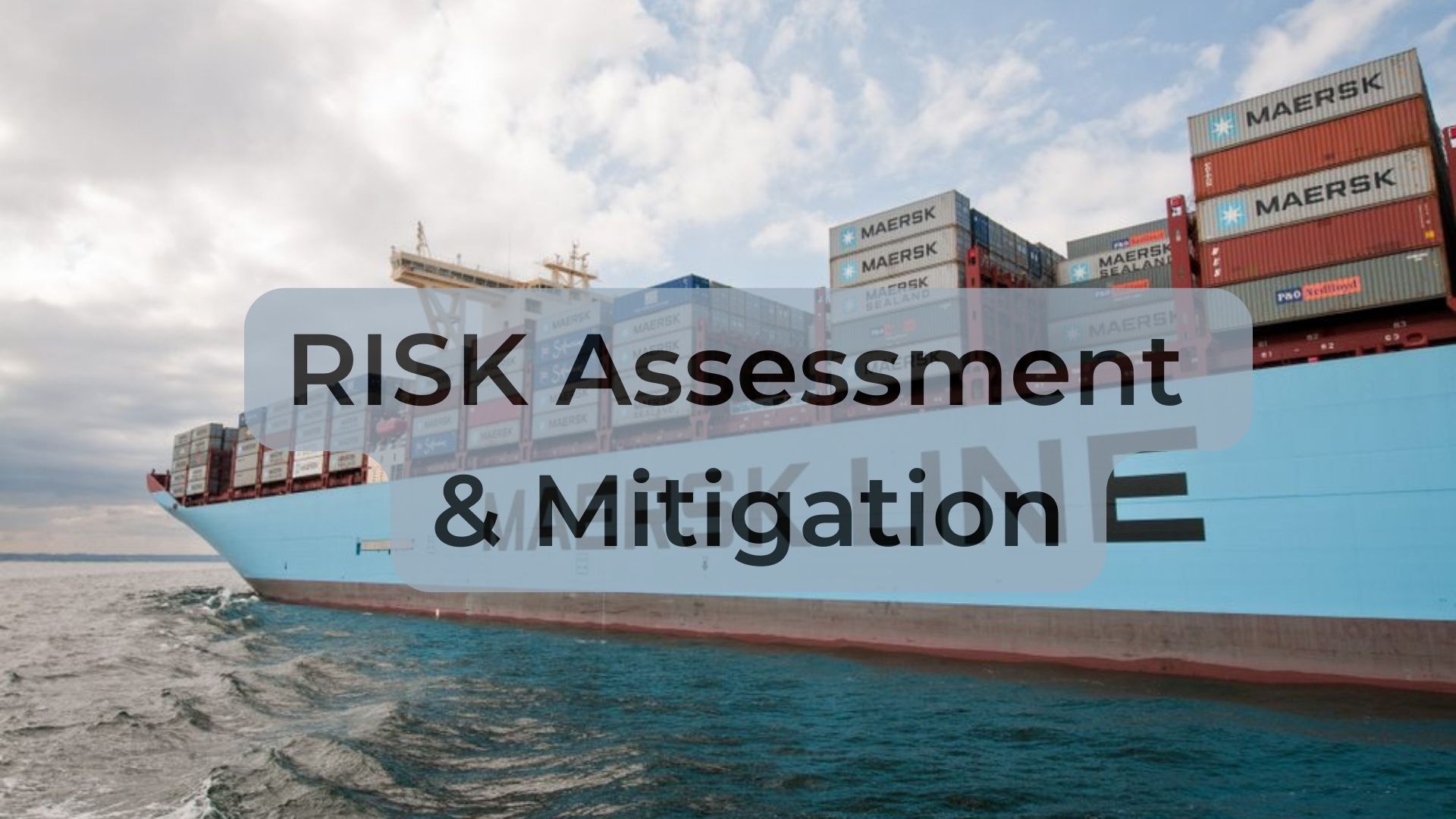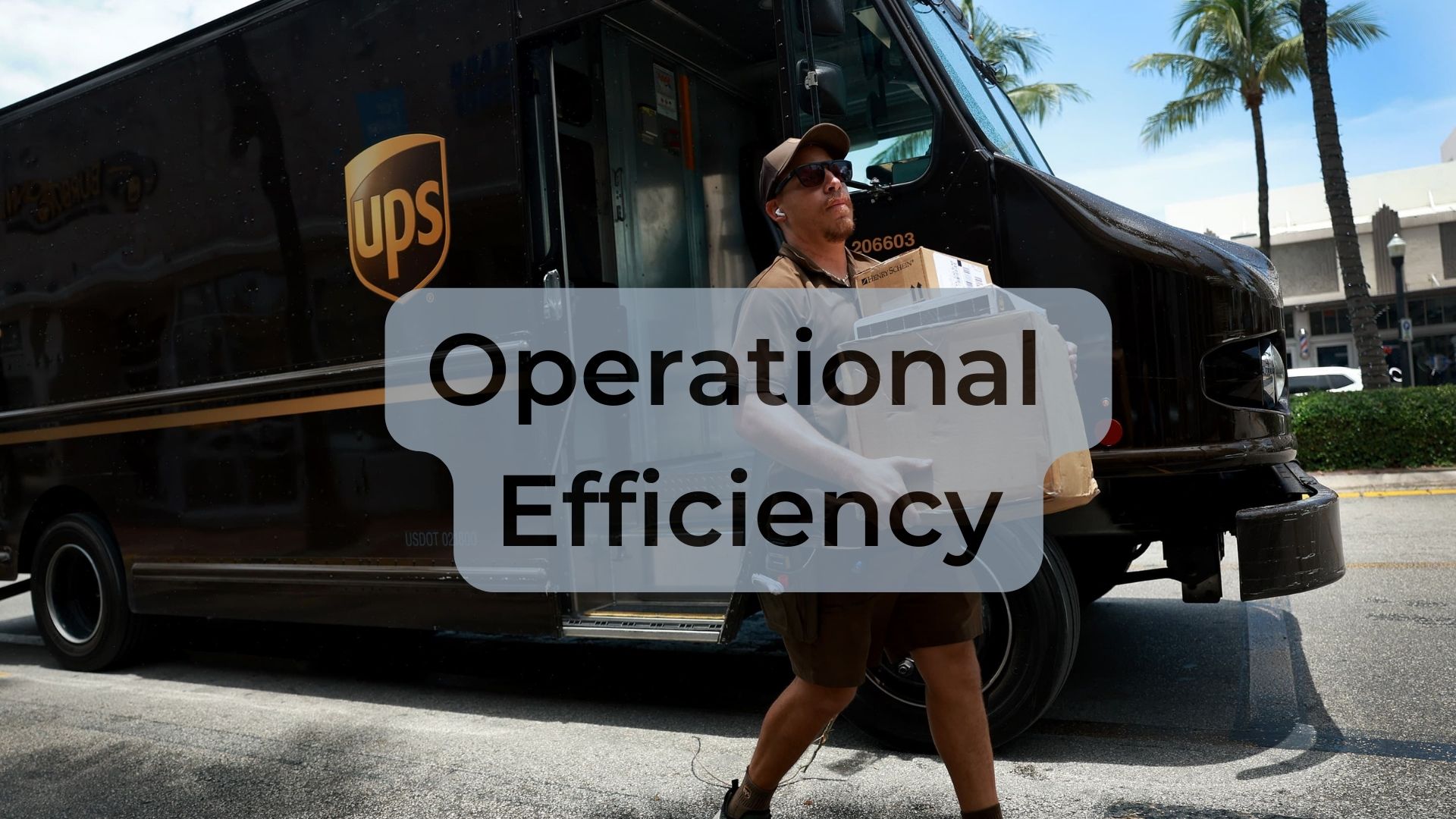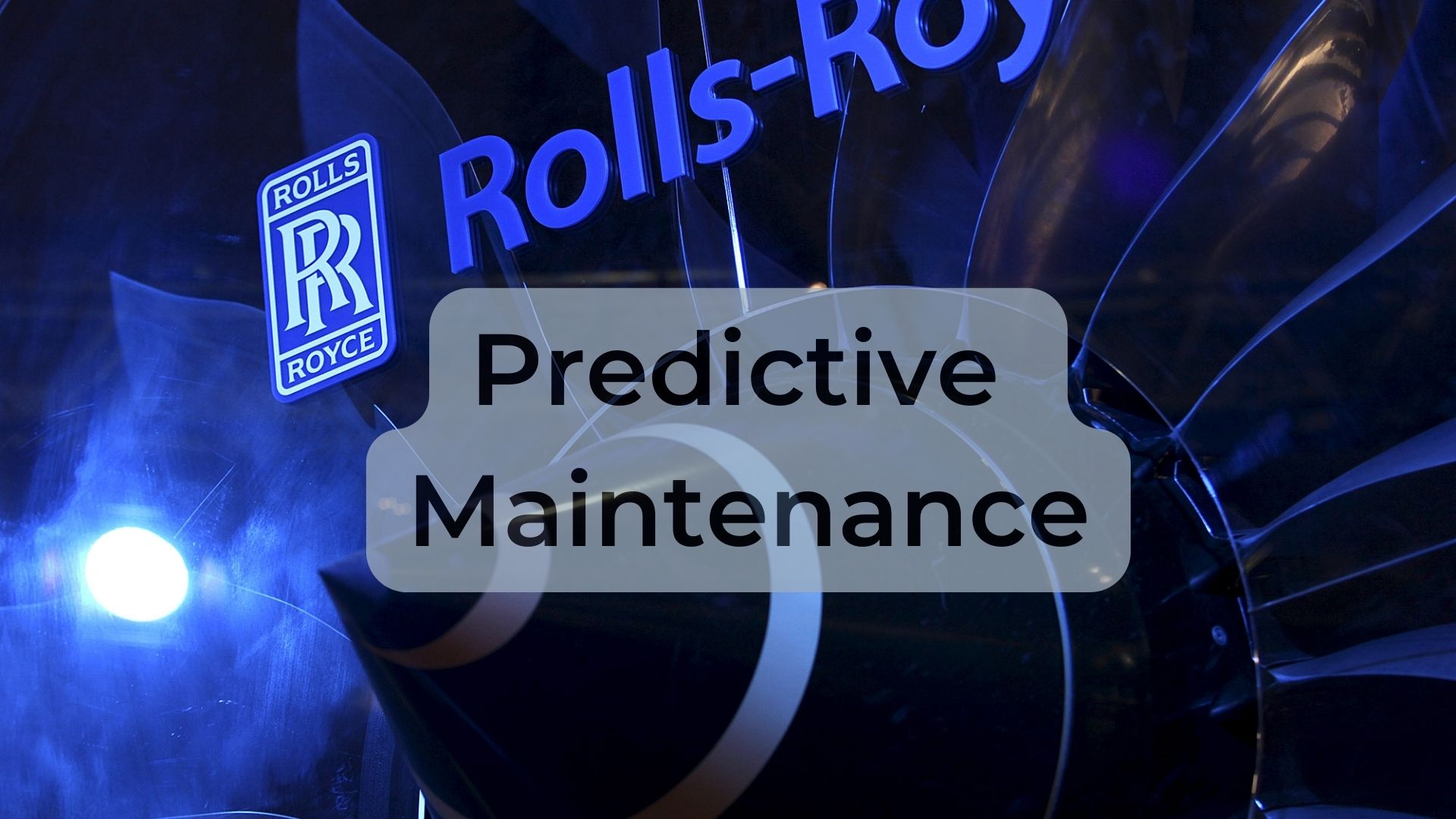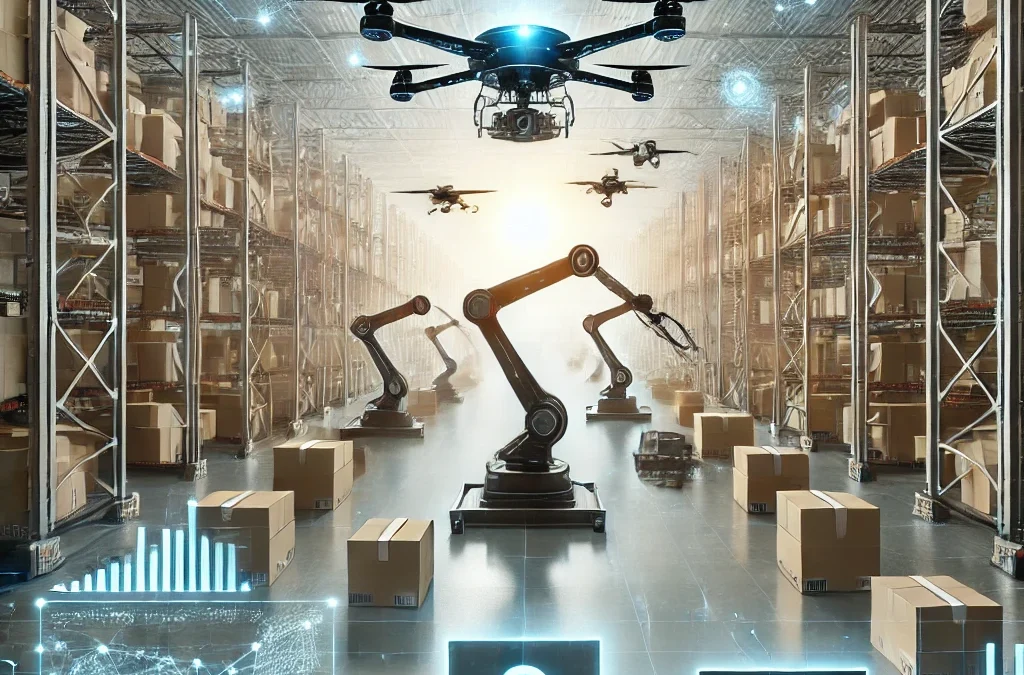What is Generative AI
Generative AI is a branch of artificial intelligence that focuses on creating new content. It stands out for its ability to create new, unique data outputs like maintenance schedule, future product trends or even potential disruption that would impact inventory levels. Let’s delve into its capabilities and distinctive characteristics.
Generative AI excels in simulating scenarios and forecasting outcomes, proving invaluable in domains such as demand projection, financial modeling, and risk assessment.
Generative AI has demonstrated success across various sectors, including medicine, where it aids in drug discovery and medical imaging, as well as in gaming, enhancing game design and player experiences. Notably, it finds extensive application in marketing, facilitating the creation of tailored offers and advertisements.
Today's Supply Chains
In today’s market, supply chains play a critical role by enhancing companies’ efficiency, competitiveness, and responsiveness to consumer demands and global market trends. In this post-Covid era, they have undergone significant transformation. From shifting away from offshoring to embracing near shoring, from the traditional just-in-time approach to adopting a just-in-case strategy, there’s a heightened focus on visibility. Additionally, there’s a surge in faster direct-to-consumer models like drop shipping, aimed at reducing shipping time and overhead costs. Supply chains are in a constant state of evolution. However, these changes bring about challenges and place immense pressure on businesses to adapt and ensure the high performance of their supply chains for guaranteed success.
Supply Chain Challenges
Managing global supply chains involves navigating diverse regulations, cultures, and time zones, while facing risks from geopolitical events and health crises. Demand fluctuations add complexity, as inaccurate forecasts can result in overstocking or stockouts, and shifting consumer preferences further complicate planning. Additionally, companies are under growing pressure to adopt sustainable and ethical practices, including reducing carbon footprints and ensuring fair labor standards.
.
01
Globalization
02
Demand Fluctuations
03
Ethical Practices
04
Sustainable Practices Integration
How Can Generative AI Support Supply Chains

Generative AI can analyze vast amounts of data, including historical sales, market trends, demographic information and even external factors, like weather, social sentiments and economic indicators, to generate more accurate demand forecasts. This helps in better inventory management and reduces stockouts or overstock situations. Generative AI continuously refines its forecasting model over time, incorporating new data inputs and adjusting predictions based on real-time feedback. This agile approach allows companies to adapt quickly to changing market conditions and emerging trends, staying ahead of competition.
Insight: For instance, Bosch’s AI-driven demand forecasting system analyzed historical sales data from various regions and product categories to identify demand patterns and trends. The system then used this information to predict future demand for different products and components, enabling Bosch to optimize its production schedules and inventory levels accordingly.

AI can assist in planning and optimizing manufacturing capacity, considering factors like demand forecasts, production lead times, and resource capacity.
Insight: Amazon, one of the world’s largest e-commerce companies has implemented AI-driven capacity planning to streamline its fulfillment network, ensuring efficient order fulfillment and timely delivery to customers. These AI algorithms dynamically optimize capacity allocation across fulfillment centers, distribution nodes, and transportation routes in real-time. With AI, a company can significantly improve operational efficiency, reduce logistics costs, and enhance the speed and reliability of order delivery. Moreover, AI-driven capacity planning enables companies to scale their logistics network rapidly to meet growing customer demand while maintaining high service levels.

AI can simulate various supply chain scenarios, including disruptions like natural disasters or supplier failures, to help companies prepare and mitigate risks more effectively.
Insight: For example, Maersk, a leading global shipping company, has harnessed AI-driven risk assessment and mitigation strategies to fortify its supply chain operations. By collaborating with AI and data analytics firms, Maersk developed sophisticated algorithms capable of analyzing diverse data sources to predict and preempt potential risks such as weather-related disruptions, port congestion, and equipment failures. These AI algorithms enable proactive rerouting of vessels, adjustment of schedules, and predictive maintenance interventions to prevent downtime and delays. As a result, Maersk has enhanced the reliability, resilience, and efficiency of its supply chain, reducing delays, improving customer satisfaction, and strengthening its competitive position in the global shipping industry.

By optimizing logistics, warehouse operations, and transportation routes, generative AI can significantly reduce operational costs and time. This includes more efficient use of resources and improved delivery schedules. Planning the most efficient route as always been a headache for the supply chain and AI will provide the needed information and calculation.
Insight: One notable example is UPS‘s use of AI-powered route optimization algorithms to streamline package delivery routes and schedules. These algorithms analyze various factors such as package volume, delivery locations, traffic patterns, and driver availability to dynamically optimize delivery routes in real-time. By leveraging AI, UPS has been able to significantly reduce transportation costs, minimize fuel consumption, and improve delivery speed and accuracy.

Generative AI can help in choosing the best suppliers by evaluating various factors like cost, quality, reliability, and risk. It can also facilitate better collaboration and communication with suppliers. Finding the right supplier based on reliable information has always been a challenge that required lots of time for the buyers and planners. Generative AI will provide the data for the buyers to make a quick an effective decision.
Insight: For instance, Walmart uses AI to assess supplier reliability, product quality, and pricing competitiveness. The AI algorithms analyze supplier performance metrics such as on-time delivery, order accuracy, and product returns to evaluate supplier effectiveness.

In manufacturing and logistics, AI can predict when equipment or vehicles need maintenance, preventing downtime and extending the lifespan of assets. No more reasons to have the machines not operating at full capacity.
Insight: As an example, Rolls-Royce employs AI to monitor the performance of gas turbines, diesel engines, and other industrial machinery. By analyzing operational data such as fuel consumption, operating temperatures, and component wear, AI algorithms can predict when maintenance tasks such as oil changes, filter replacements, or component overhauls are required.

AI can generate solutions to make supply chains more sustainable, such as optimizing energy use in warehouses and transportation or suggesting eco-friendly materials and practices.
Insight: Nike, a global leader in athletic footwear and apparel, implemented a project called “Circular Design Guide” powered by AI to enhance sustainability throughout its product lifecycle. The company uses AI algorithms to analyze data on materials, manufacturing processes, and consumer behavior to identify opportunities for reducing waste and improving recyclability. The company utilizes AI to optimize material selection by analyzing the environmental impact of different materials and identifying alternatives that are more sustainable. AI algorithms help in designing products that use recycled materials and are easier to disassemble and recycle at the end of their lifecycle.
Challenges and Considerations
Integrating generative AI into supply chains presents numerous advantages, yet it’s not without its own set of hurdles and constraints.
Security & Privacy
The reliance of generative AI on data raises legitimate concerns about privacy and security. Employing a blend of technological safeguards (like data encryption), regulatory adherence (such as user consent protocols), and organizational protocols (like robust risk management and staff training) is essential for navigating these challenges effectively.
Data Accuracy
The effectiveness of generative AI hinges heavily on the quality of input data. Therefore, ensuring the precision, relevance, and quality of data inputs is paramount. Regular data audits and cleansing procedures are instrumental in upholding data integrity.
Change Management
The integration of AI often necessitates significant shifts in existing business processes. To ensure a seamless transition to an AI-powered supply chain, effective change management practices are indispensable.
Addressing these challenges adeptly is needed for the successful incorporation of generative AI into supply chain operations. By proactively addressing security concerns, maintaining data accuracy, and implementing robust change management strategies, businesses can unlock the full potential of generative AI while mitigating potential risks.
Future Trends in AI for Supply Chain
As the landscape of supply chain management evolves, generative AI emerges as a transformative force, promising to enhance efficiency, resilience, and innovation. By leveraging advanced algorithms, businesses can anticipate market shifts and streamline operations, ensuring a competitive edge in the industry.
Advanced Forecasting Models
Generative AI enables the development of sophisticated forecasting models that analyze complex datasets to predict demand with unprecedented accuracy. This leads to improved inventory management, minimizing waste and optimizing resource allocation.
Automated Supply Chain Design
Through the automation of supply chain design, generative AI evaluates numerous factors such as cost, speed, and sustainability. This capability allows for the creation of optimal network configurations, enhancing operational efficiency and reducing risks.
Proactive Inventory Management
AI’s ability to process vast amounts of data allows businesses to manage inventory proactively. By predicting supply disruptions and market trends, companies can adjust their strategies in real-time, ensuring seamless operations and customer satisfaction.
Sustainability and Efficiency
Generative AI contributes to sustainable supply chain practices by optimizing energy use and suggesting eco-friendly materials. This not only reduces environmental impact but also aligns with growing consumer demand for ethical business practices.
Partner with EverBlue for AI Success
Unlock the full potential of your supply chain by integrating cutting-edge AI solutions. EverBlue Partners is here to guide you through this transformative journey, offering tailored strategies that enhance efficiency, resilience, and innovation. Connect with us today to stay ahead in the competitive landscape.

Julien Fontaine
Director, Consumer Industries
“Embracing generative AI means embracing a future where supply chains are not just adaptive but predictive, not just efficient but sustainable. Businesses can harness this potential, invest in AI integration, and gain a competitive edge in the future market landscape where AI will have a definitive place.”

United States:
1160 Battery Street East, Suite 100, San Francisco, California, 94111
Canada:
One Dundas Street West, Suite 2500, Toronto, Ontario, M5G 1Z3
Brazil:
8th Floor, 90, Dolorez Alcaraz Caldas Ave., Praia de Belas, Porto Alegre, Rio Grande do Sul, 90110-180



